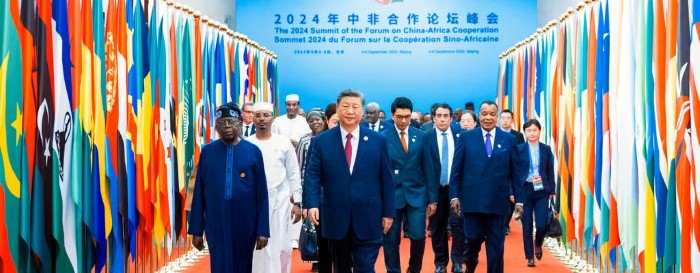(3 Minutes Read)
The economic and trade relationship between China and Africa is experiencing steady growth, with bilateral trade reaching approximately USD 295 billion in 2024—a 6% increase from the previous year, according to senior officials from the Chinese Mission to the African Union and the African Union Commission. This sustained growth reaffirms China’s role as Africa’s leading trade partner for the fifteenth year in a row.
At a recent policy discussion held in Addis Ababa, Ethiopia, Hu Changchun, the Head of the Chinese Mission to the African Union, highlighted the broadening scope of China-Africa economic cooperation. Organised jointly by the Chinese Mission and the African Union Staff Association, the event aimed to enhance mutual understanding and explore future avenues for joint economic progress.
Hu noted that nearly half of African countries saw double-digit increases in trade with China over the past year, illustrating the vitality of their economic partnership. This momentum has been driven by supportive trade initiatives, especially under the Forum on China-Africa Cooperation (FOCAC) and the Belt and Road Initiative (BRI), both of which have motivated Chinese firms to expand their activities across African markets.
He emphasised that the presence of Chinese businesses has significantly contributed to Africa’s socio-economic advancement, particularly in agriculture, infrastructure, manufacturing, renewable energy, and digital sectors. These industries are increasingly integrated into the wider China-Africa economic strategy, signalling a shared commitment to sustainable and inclusive development.
A standout element of China’s trade policy is its zero-tariff preference for the least-developed countries, benefiting 33 African nations. This measure has lowered trade barriers and enhanced African exporters’ access to the Chinese market, making them more competitive on the global stage.
Hu also highlighted China’s evolving approach to international economic cooperation, which now emphasises openness and fair access to development opportunities. “The progress we see today demonstrates China’s firm dedication to building a more balanced global economic order with Africa and other developing regions,” he said.
Mohamed El-Amine Souef, Chief of Staff at the African Union Commission, echoed these views, referencing China’s longstanding support for Africa since the post-independence era. He praised China’s contributions in fields such as health, security, infrastructure, and capacity building through military and technical training.
Souef stated that such consistent support has played a key role in moving forward the African Union’s development goals, particularly as outlined in Agenda 2063. “China’s role is not simply transactional,” he remarked. “It is that of a developmental ally dedicated to helping African nations establish strong, self-sufficient systems.”
The briefing also shed light on China’s strategy to promote trade and investment through major international expos such as the China International Import Expo and the Canton Fair. These events have been pivotal in linking African exporters with Chinese buyers and investors, while also offering African businesses global exposure and opportunities to market local products to Chinese consumers.
The ongoing evolution of China-Africa relations shows a shift from a focus on raw materials to more diversified and sophisticated areas of engagement. This mirrors global trade trends where developing nations are increasingly integrating into global value chains via infrastructure development, digitalisation, and sustainable practices.
Although some global observers have raised concerns about debt risks tied to infrastructure projects under the BRI, many African leaders and analysts argue that the benefits, such as better transportation networks, improved energy access, and enhanced industrial capacity, outweigh the risks if managed properly. Transparency and effective implementation are seen as critical to maximising positive outcomes.
Read Also;
https://trendsnafrica.com/china-africa-trade-tops-usd-282-billion-in-2023/
Looking ahead, both China and Africa appear determined to deepen their cooperation based on mutual respect and shared goals. As Africa takes on a more prominent role in the global economy, China’s ongoing investment in the continent’s infrastructure and industrial capacity will likely remain a cornerstone of their partnership.
In their closing remarks at the Addis Ababa event, representatives from both sides emphasised the importance of continuous dialogue, expanding collaboration into new sectors, and working together on global challenges such as climate change, digital governance, and inclusive growth. They stressed that such cooperation will ensure that the China-Africa relationship continues to serve as a strong and flexible model of South-South collaboration.





